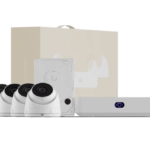Engineers from the University of California-Santa Cruz have developed a new system called Pulse-Fi that can accurately measure a person’s heart rate using only Wi-Fi signals, eliminating the need for smartwatches or other wearable sensors. The technology, presented at the 2025 International Conference on Distributed Computing in Smart Systems and the Internet of Things, leverages a machine learning model to detect the tiny alterations that a human heartbeat causes in wireless signals as they pass through the body.
According to early data, the system achieved clinical-level accuracy in a study of 118 participants, measuring heart rate within half a beat per minute after just five seconds. The approach proved effective even when subjects were moving or at distances of up to three meters (nearly ten feet). Researchers demonstrated that the system can run on inexpensive commodity hardware like a $30 Raspberry Pi or a $5 ESP32 Wi-Fi module, suggesting a highly accessible path to implementation in homes and clinics.
The research aims to create a low-cost, non-intrusive alternative to current monitoring methods, which range from inconvenient wearables to hospital equipment that can contribute to issues like alarm fatigue, with some studies noting an average of 350 alarms per patient per day. In their paper, titled “Pulse-Fi: A Low-Cost System for Accurate Heart Rate Monitoring Using Wi-Fi Channel State Information,” the team states that contactless monitoring is “critical to improving elderly care and early health intervention,” noting that Wi-Fi signals are ubiquitous and avoid the privacy concerns of camera-based systems.
To train the machine learning algorithm, the team created a unique dataset by collecting Wi-Fi data alongside simultaneous readings from a standard medical oximeter to provide a “ground truth” for the AI to learn from. The researchers are already exploring expanding the system to measure breathing rates, with potential applications for diagnosing conditions like sleep apnea without requiring patients to wear cumbersome sensors.
Sources
- CNET: Wi-Fi Signals Can Measure Heart Rates Without Wearables, New Research Suggests
- TechSpot: No wearables needed: Researchers use WiFi and a Raspberry Pi to monitor your heart rate
- BioSpace: Philips launches smart telemetry platform for cardiac monitoring that provides continuous, enterprise-wide connectivity beyond the bedside
- XDA-Developers: Researchers prove you can use a Raspberry Pi and Wi-Fi to monitor your heart rate
- Earth.com: Wi-Fi ‘Pulse-Fi’ breakthrough transforms wireless signals into health data







